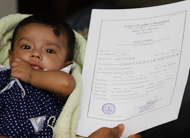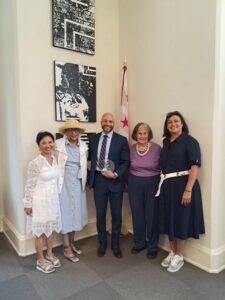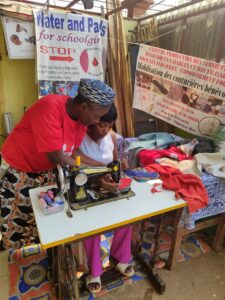 There is good news and bad news on birth registration.The bad news is:
There is good news and bad news on birth registration.The bad news is:
230 million children under five are not registered despite ongoing efforts to increase the rate of birth registration. Yet, according to the Convention on the Rights of the Child (CRC) and the International Convention on the Rights of all Migrant Workers and Members of their Families as well as the International Convention on Civil and Political Rights (ICCPR) states are obliged to register all children immediately after birth, without discrimination of any kind and irrespective of the status of his or her parents.
The good news is that after Latin-American and Asian-Pacific countries the African countries declared a decade for Civil Registration and Vital Statistics (CRVS). Like the countries in the Asia and Pacific region they resolved to have a CRVS system in place by 2024.
The Human Rights Council adopted two resolutions on the 27th of March 2015, one by the European Union and Latin American Countries about the Rights of the Child, where birth registration is mentioned and where States are called upon not to discriminate unregistered children as regards access to healthcare, protection, education, safe drinking water and sanitation and basic services. (A/HRC/28/L.28)
The other resolution was proposed by Mexico and Turkey and was limited to birth registration.
It reminds the States of their obligation to register births without discrimination of any kind and irrespective of the status of his or her parents, to name just one of the barriers to registration.
It was interesting to follow the informal meeting about this resolution. States weigh every word, propose changes and indicate wether they are for or against. Little things like ‘welcomes’ can be changed into ‘takes note’ to remove the objection. A discussion was held about the discrimination of persons without birth registration or proof of birth, some countries proposed ‘children’ instead of ‘persons’, others held that this would exclude adults, who didn’t have registration because there was no system.So all mention of people was abolished and just ‘the lack of birth registration’ was put in place.
There was also a question about the fee for late registration, eventually solved by the phrase ‘free or low-fee late birth registration’.
The whole process of negotiation was very constructive and cooperative and led to a shorter and clearer resolution. Including recognition of the efforts made at the regional level, Asia and the Pacific and Africa.(A/HRC/28/L.23)
The High Commissioner is asked to prepare a report for the 33rd session of the HRC on cooperation of all stakeholders and best practices.That will be September 2016.


